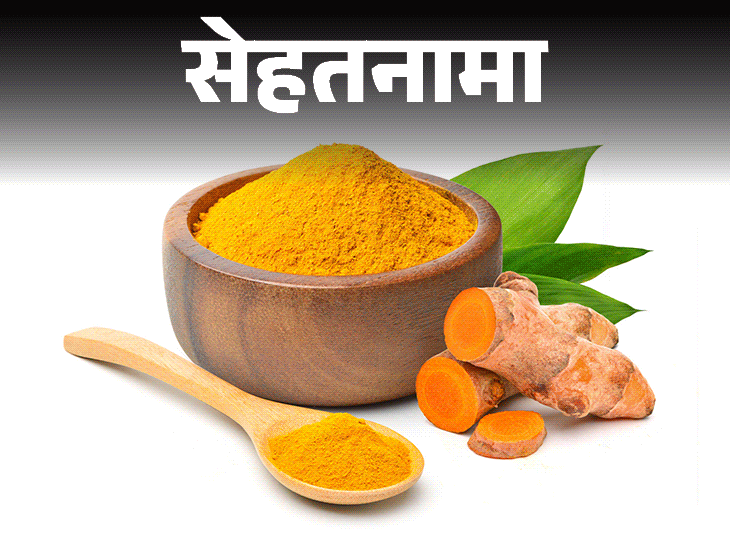Each country has its own particular culture and tradition. Everyone has their own food. Turmeric rules these three things with absolute power in India. Turmeric has taken a special place throughout Indian culture, tradition and cuisine.
It also has a special place in Ayurvedic medicine. Turmeric has long been widely used to treat wounds, pain and swelling. Our ancestors were so impressed by the benefits of turmeric that they included it among the spices. Today, turmeric is so present in our diet that sometimes we don’t even realize its presence when eating.
A pinch of turmeric present in all types of vegetables and legumes acts as a powerful shield when diseases attack us.
Turmeric is the jewel of our diet. This not only increases the color and taste of food, but also increases its nutritional value. Often this does not even allow us to notice minor injuries, pain and swelling. Apart from this, it also protects against serious diseases like cold, heart disease and cancer.
That’s why today in “Sehatnama” we will talk about turmeric. You will also learn that-
What is the nutritional value of turmeric? What are its medicinal properties? What diseases does turmeric protect against? What are the side effects of excessive consumption of turmeric?
Turmeric is a panacea for injuries, pain and swelling.
Our ancestors have long known the benefits of turmeric. This is why he made turmeric an essential part of the diet. Apart from this, it has also been used a lot for injuries, pain and swelling.
Nutritional value of turmeric
One teaspoon of turmeric contains around 29 calories. It is rich in protein, fiber and carbohydrates. Apart from this, turmeric also contains very important minerals for the body like manganese, iron and potassium.
What are the medicinal properties of turmeric?
Dr Satnam Singh, working at Delhi’s Arogyam Ayurvedic Allergy Hospital, says turmeric has become a topic of discussion in the medical world in recent years due to its anti-cancer properties. Numerous research and studies are underway on this property. Curcumin, a powerful antioxidant found in turmeric, has raised hopes that in the future, turmeric may be useful in treating cancer.
Dr. Satnam Singh explains that turmeric has antimicrobial and antiviral properties. If you consume it daily, it protects you from colds. Apart from this, it also protects against lifestyle diseases like diabetes.
What diseases does turmeric prevent?
If turmeric is consumed regularly, many problems in our lives will be avoided. This is not a simple question. Continuing research on turmeric has proven time and again that it is possible to cure many diseases.
What are the health benefits of consuming turmeric, see in the chart:
Let us understand some of the points given in the chart in detail.
Prevents inflammation and pain
Curcumin present in turmeric is a bioactive substance. It eliminates inflammation and pain. Turmeric is therefore very effective in cases of minor injuries.
Prevents heart disease
According to the World Health Organization, most deaths worldwide are due to heart disease. The endothelium has a special function in our heart. When its functioning is impaired, blood pressure begins to rise and the risk of blood clotting increases. It is also the leading cause of heart disease.
According to a study published in the National Library of Medicine, turmeric helps improve endothelium function. This reduces the risk of heart disease.
is effective in the treatment of cancer
According to a study published in the National Library of Medicine, curcumin can cure many types of cancer in the early stages. Research has shown that curcumin can affect the growth and development of cancer cells. Three important things emerged from this study.
Curcumin can destroy cancer cells. Prevents the formation of new blood vessels (angiogenesis) in tumors. Reduces the spread (metastasis) of cancer.
Studies have also shown that curcumin is able to prevent cancer of the digestive system, such as colorectal cancer, in its early stages.
Useful in the treatment of arthritis
According to a study published in the National Library of Medicine in October 2022, turmeric would be more effective than placebo (a treatment administered for arthritis) in the treatment of osteoarthritis. This removes both swelling and pain. It acts as a non-steroidal anti-inflammatory drug.
Useful in the treatment of Alzheimer’s disease
Alzheimer’s disease is the most common form of dementia. Alzheimer’s disease is responsible for 70% of cases of dementia. Due to Alzheimer’s disease, inflammation and oxidative damage increase in the brain. The antioxidant curcumin present in turmeric is effective in controlling these two symptoms of Alzheimer’s disease.
Due to Alzheimer’s disease, a clot forms in the brain and curcumin helps to cure it. If turmeric is consumed regularly alongside treatment, it helps reduce the symptoms of this disease. This also avoids the risk of dementia.
Is it OK to eat turmeric daily?
Considering the various beneficial properties of turmeric for health, its daily consumption has many benefits. However, if a person consumes 12 grams or more of turmeric, they may face side effects like diarrhea, constipation, or vomiting. What other problems this can cause, see in the chart.
Who Should Not Eat Turmeric?
Some people should consume turmeric in very limited quantities, if at all. If it is part of a regular diet, consult a doctor once. Above all, these people must be careful –
If a woman is pregnant or breastfeeding. People who have gallbladder or kidney problems. Those who suffer from bleeding disorders. Those who suffer from diabetes or iron deficiency.
…………………….
Sehatnama – How right is Sidhu in following a cancer diet: is the diet really useful, what should you eat in case of cancer?
Former Indian cricketer and former Punjab Congress president Navjot Singh Sidhu held a press conference. In this he describes the Indian system of medicine as more scientific than the current medical science. Cancer doctors at Tata Memorial Hospital disagreed with the claim. …

